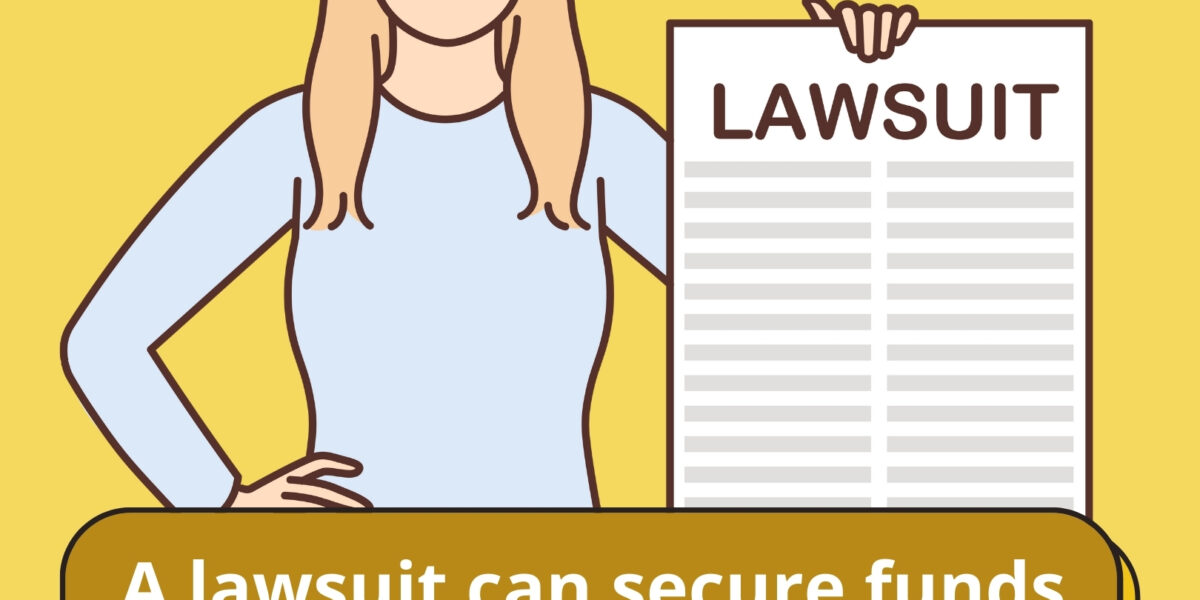![]() Children with hypoxic-ischemic encephalopathy (HIE) or related birth injuries often require a lifetime of expensive treatments, therapies, and supports for their resulting health conditions.
Children with hypoxic-ischemic encephalopathy (HIE) or related birth injuries often require a lifetime of expensive treatments, therapies, and supports for their resulting health conditions.
Families can often obtain government financial assistance, but these sources of support will likely come nowhere near maximizing their child’s well-being. Moreover, certain funding sources are dedicated specifically to children under the age of 21. Once the child reaches that age, they will have to seek assistance elsewhere. This can become especially difficult if the adult dependent has complex medical care needs. In many cases, government funding is not enough to secure a comfortable life.
If you believe that your child’s birth injury was due to negligence by your medical providers, a birth injury attorney can help. The financial compensation secured from a medical malpractice lawsuit can provide the security of a lifetime of funds to care for your child.
Jump To:
- HIE & Medical Malpractice
- Pursuing a Birth Injury Lawsuit
- How a Settlement or Verdict Can Help Your Child?
- Life Care Planning
- Trusts & Annuities
- When Can a Birth Injury Lawsuit Be Filed?
HIE is strongly associated with medical malpractice
 Unfortunately, HIE often results from medical malpractice. Negligent care during pregnancy, birth, or in the neonatal period can cause a baby to become deprived of oxygenated blood and develop HIE. Some examples of negligent actions that can cause or increase the severity of HIE include:
Unfortunately, HIE often results from medical malpractice. Negligent care during pregnancy, birth, or in the neonatal period can cause a baby to become deprived of oxygenated blood and develop HIE. Some examples of negligent actions that can cause or increase the severity of HIE include:
- Errors in fetal heart rate monitoring
- Failure to promptly and appropriately respond to signs of fetal distress (indications that a baby is being deprived of oxygen)
- Insufficient precautions taken for a high-risk pregnancy
- Mismanagement of an issue involving the fetal presentation
- Mismanagement of an issue involving the uterus, placenta, or umbilical cord
- Failure to give hypothermia therapy to a newborn with HIE (this is a treatment that can minimize lasting brain damage)
Pursuing a birth injury lawsuit
 If parents suspect that their child’s HIE was preventable, it may be worth pursuing a birth injury lawsuit.
If parents suspect that their child’s HIE was preventable, it may be worth pursuing a birth injury lawsuit.
Birth injury law is a type of medical malpractice that focuses on harm that occurs during pregnancy, birth, or the neonatal period. A birth injury case settlement or verdict may go a long way in helping to secure the child’s future needs.
Will a lawsuit take time away from my child?
Many parents worry that pursuing legal action will take away too much time from caring for their child – this is not the case. Parents may spend just a few hours on the case, and scheduling is done at their convenience. The attorneys spend their time consulting with medical experts, gathering information, and building the case. This means that the parents do not have to distract themselves from the care of their child to seek justice.
What is the point of a medical malpractice lawsuit?
Medical malpractice lawsuits primarily aim to:
- Secure the child’s future by obtaining a settlement or verdict.
- Provide parents with peace of mind about how they will be able to afford their child’s care.
- Hold medical practitioners accountable and liable for negligence.
What kind of attorney should I look for?
It is important to choose an an attorney and/or law firm that works exclusively on birth injury cases. They know the ins and outs of this very niche part of medical malpractice law in ways that a more general malpractice attorney doesn’t. We’ve compiled a list of questions for you to consider when when choosing a potential birth injury attorney.
How a settlement or verdict can help your child?
 The funds are usually placed into a Special Needs Trust (SNT) dedicated to the child’s lifelong care. SNTs are often invested and gain interest over time, allowing the sums to grow.
The funds are usually placed into a Special Needs Trust (SNT) dedicated to the child’s lifelong care. SNTs are often invested and gain interest over time, allowing the sums to grow.
SNTs are set up in such a way that they aren’t counted as taxable income for the child. This is critical because it means that the government child’s benefits are preserved. This allows the child to continue receiving government benefits while being able to pay for additional services and needs that are not covered. We get more into depth on special needs trusts in a few sections.
Life care planning: an important part of birth injury lawsuits
One of the things that a medical malpractice attorney will do in the process of handling a case is work with a life care planner. Life care planners understand what kind of care your child will need throughout their lifetime. Because a child’s care needs can change as they grow, it is important to have a professional calculate what kinds of costs the family may incur.
Why is life care planning important to the lawsuit?
This is useful in two ways:
- It helps attorneys build their case.
- It allows parents to get a better idea of what kind of services to plan for in the future.
When an attorney presents the case, they take into account the presumed costs of the child’s care. This, in turn, can help make sure that the settlement or verdict amount is fair to the child and will indeed help cover a lifetime of care.
Trusts and annuities: making sure your child’s birth injury settlement works for them
When there is a settlement or verdict from a medical malpractice lawsuit, the way the settlement or verdict is paid out can be complicated. Because an individual with disabilities may have trouble with finances, money usually can’t be delivered straight into that child’s account. Instead, the money is deposited in a special needs trust. This trust then pays out annuities to the beneficiary at certain regular time intervals, allowing the funds to be used to cover certain expenses.
What is a Special Needs Trust (SNT)?
Often, the best way to preserve a child’s benefits is to set up a Special Needs Trust. This type of trust is specifically set up in a way that will preserve governmental benefits for the child, like Medicaid and SSI. This is done by carefully stipulating what kinds of things the money in the trust can and cannot pay for. Usually, this means that funds from the SNT cannot be used to pay for things that public benefits would already cover. This means, effectively, that the SNT prevents ‘double-dipping’ or ‘overlap’ between what monetary sources can cover what expenses.
These trusts also offer tax advantages to the child. Since the trust isn’t directly in the child’s name, the funds in the trust aren’t counted as the child’s assets. These kinds of trusts are very complicated to set up – an attorney should be consulted to make sure it is done properly.
Is there someone that can help manage my child’s funds?
Special Needs Trusts are placed under the control of a supervised third party to ensure the benefits aren’t being misused. This third party can be a trustee, custodian, or conservator. There are certain regulations and stipulations that ensure the funds in the trust are not being misused by the person overseeing the account.
One very common way to set up trust administration is to use a trustee or conservator. This individual has the ability to invest and use funds from the trust to the minor’s benefit, but is also overseen (at least once a year) directly by the court system. The court system looks through the accounting records of the trust to make sure funds are being properly allocated, which protects the child from having their funds exploited.
When can a birth injury lawsuit be filed?
Parents should be aware that they do not have an unlimited time frame to file a lawsuit. This is due to the ‘statute of limitations,’ which says that a person has to file a suit within a certain specific time frame, or they are permanently barred from suing at all. The statute of limitations varies vastly based on the state in which a family lives. In some cases, the statute of limitations is as little as 2-3 years, while in others, it may be as long as 21 years.
Because the laws that govern medical malpractice are so complex, it is important to talk to an attorney about filing a suit as soon as you suspect medical malpractice. Waiting too long may make it impossible for you to pursue a case at all.
About the HIE Help Center
The HIE Help Center is run by ABC Law Centers (Reiter & Walsh, P.C.), a national law firm handling exclusively HIE and birth injury cases since 1997. We provide free legal consultations, during which we will inform you of your options and answer any questions you have. Contact us to learn more about pursuing a case.


